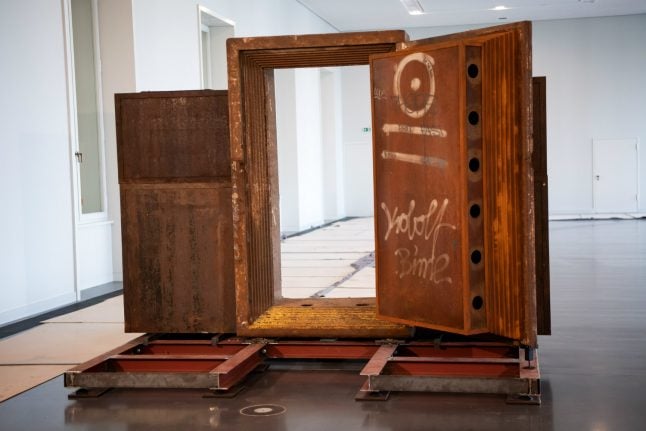The rusty portal to the original Tresor nightclub became the first object for a display about the city at a museum still under construction.
The door's journey mirrors Berlin's own turbulent 20th century history and is said to be a symbol of the city's rebirth after its Cold War division.
The door once sealed the massive bank safe rooms of the pre-war Jewish-owned department store Wertheim, whose family proprietors were stripped of their assets by the Nazis and either sent to the camps or forced into exile.
The elegant shopping centre was demolished in Allied bombing during World War II but the heavy metal door survived nearly unscathed.
It languished for decades in the no-man's land at the highly militarized border.
But after the Wall fell in 1989, dozens of the city's abandoned industrial spaces, particularly in the ex-communist east, were converted into pop-up electronic music venues, attracting party people from east and west Germany and around the world.
READ ALSO: Berlin clubs brought city €1.5 billion in 2018
'Symbol of new era'
Perhaps the most legendary of the early 1990s clubs was Tresor, which owner Dimitri Hegemann built inside the former department store's underground safes with the famous door at its entrance.
The club's original location finally closed in 2005 and the site was razed to construct a sprawling shopping mall and office buildings.
While the nightclub found new digs in a power station, complete with its original steel bars and safe-deposit boxes from the safe rooms, the five-tonne, 2.3-metre door was too heavy to install.
Hegemann held onto the structure, still marked with the spray-painted symbol of the club: a circle with a dot inside and a line below it.
SEE ALSO: Berlin clubs – the ten most famous and notorious
Now he has lent it to the new Humboldt Forum Berlin museum, which is due to open next year in a recreation of a former palace belonging to the Hohenzollern dynasty that was damaged during the war and later destroyed by the communists.
At a presentation Tuesday, Hegemann called the door “a symbol of the threshold to a new era” in reunited Germany.
Amid rampant gentrification, he said he hoped booming Berlin would not give up its status as a mecca for “free space and subcultures”.



 Please whitelist us to continue reading.
Please whitelist us to continue reading.
Member comments